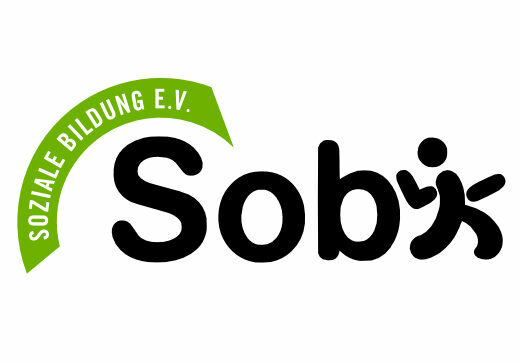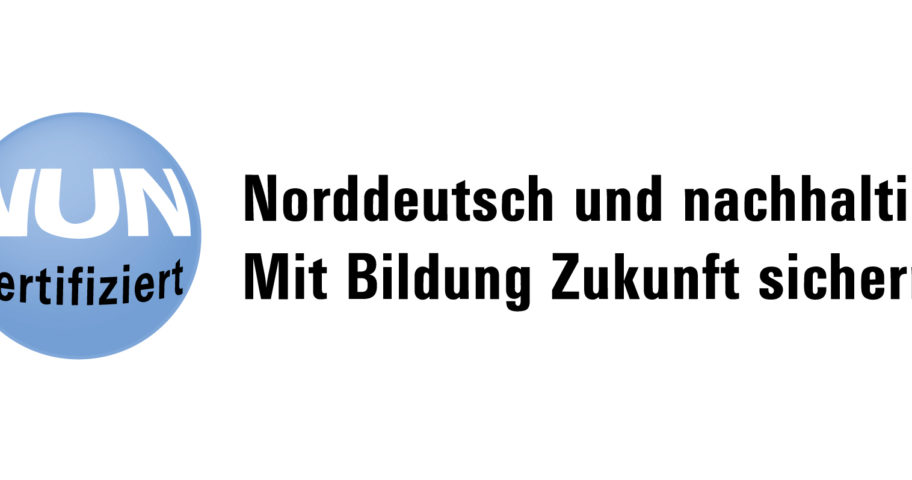SoBi. is “North German and Sustainable” certified! Why?
We have a mission statement that has been developed in a sustainable and participative manner with ALL employees
- our educational concept includes values, attitudes, tools and knowledge that are in harmony with sustainability
- we as acting persons regularly train ourselves and have a very solidary contact with each other
- within our association we have a very high participatory everyday life, which puts us on an equal footing and allows us to have a say in all areas
- our infrastructure is as sustainable as possible, because we buy sustainable educational materials and recycle them, because we offer fair-bio-seasonal meals during our project days, workshops and trainings, because we separate garbage, because we switch off ALL sockets at night, because we rely on open source programs, because our office is accessible by public transport and because we can eat vegetarian/vegan lunch in the PWH
- for our print publicity materials, we strive for CO2-neutral printing on eco-paper. We design our educational materials to be gender-appropriate, racism-sensitive, inclusive and barrier-free.
And that is why we were NUN-certified on the 19th of June 2015. ?
NUN stands for “North German and Sustainable”. North German because the federal states of Schleswig-Holstein, Hamburg, Lower Saxony, Bremen and Mecklenburg-Western Pomerania have jointly developed and implemented the certification. (NUN-Homepage)
Sustainable, because the completed ESD Decade (ESD: Education for Sustainable Development) is intended to make visible which individuals, educational institutions and training centres are active in ecological, social and economic terms.
Soziale Bildung e.V. received the sustainable certification as an educational institution. Not only the association, but also the fields of work (e.g. contents of educational offers) implement and live the criteria.
The NUN certification
It is based on a guiding concept that contains explicit statements on Education for Sustainable Development as a broadly based cross-cutting theme. In addition to the mission statement, it should also be possible to describe how the mission statement will be updated and with whom it will be developed, when and how.
- The mission statement of Soziale Bildung e.V. was developed jointly in what is known as “collaborative design”. Since all employees have contributed to it, it is not only known to everyone, but is also widely shared.
Building on this basis, the two quality areas of the second level have special weight in the quality process. The acting persons should be well qualified, trained and remunerated. A professional exchange and cooperation with other providers should be presented. In the pedagogical concept, ESD should appear as a cross-cutting theme and the corresponding transfer of competences should be recognisable. Here we consider fields of action, methods and perspectives in relation to the diversity of target groups.
- All employees* pursue their professional passion in their jobs. Qualifications and regular internal and external training are both the prerequisite and the driving force.
An institution or provider can only be a good place for ESD if the principles of ESD are taken to heart and tackled in-house. Internal organisation is about good accessibility and clear division of tasks. The communication among each other should show participation. When describing the organisation, it is important to describe one’s own evaluation paths and the resulting quality development. The infrastructure includes areas such as sustainable procurement and the use of technically and organisationally relevant variables: Accommodation, meals, travel to and from the event are the most important of these.
- In the association we work exclusively on the principle of consensus. Regular exchanges within and between our context groups and organizational units guarantee both work autonomy and participation. Semi-annual retreats complete the moments of reflection and strategy.
- our sustainable infrastructure starts with waste separation, the use of recycled paper and car sharing, among other things, and does not end with fair, organic and seasonal catering of multiplier*internal trainings.

